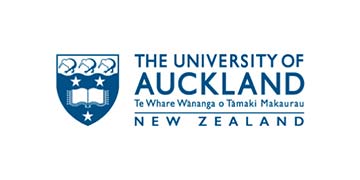University of Auckland: Lockdown listening from the Archive of Māori and Pacific Sound
The Archive of Māori and Pacific Sound (AMPS) 50th Anniversary Podcast is a series of talanoa (conversations) with five significant anthropologists connected to the University of Auckland, in celebration of AMPS’ 50th anniversary in 2020.
The archive comprises recordings from 1919 to the modern day and includes vocal and instrumental music, oral histories, stories and language resources from Aotearoa New Zealand and the rest of the Pacific. If you’re tired of Netflix, this is great lockdown listening.
For people to hear the voices of their grandparents or great-great-grandparents reciting karakia and speaking across the generations is extraordinarily powerful.
Dame Anne Salmond, Distinguished Professor of Māori Studies and Anthropology
University of Auckland
For the series, AMPS spoke to Hūfanga-He-Ako-Moe Lotu Professor ‘Ōkusitino Māhina, Drs Judith Huntsman, Richard Moyle and Wendy Pond, and Distinguished Professor Dame Anne Salmond about their work with the Archive, which was established in 1970. They also shared details about their decades of field work and research.
Dr Huntsman says the mastermind in establishing the AMPS was Bruce Biggs, who was professor of Linguistics and Māori Studies in the Anthropology Department at the University of Auckland.
“He was a very forward-looking person.”
Dame Anne Salmond says cylinder recordings, phonographic cylinders that recorded and produced sound, held at AMPS were recorded by her great-grandfather, James McDonald, in Gisborne, Rotorua, the Whanganui River and the East Coast from 1919 to 1923.
“For people to hear the voices of their grandparents or great-great-grandparents reciting karakia and speaking across the generations is extraordinarily powerful.”
The archive also contains her recordings for her thesis and book, Hui, a Study of Māori Ceremonial Gatherings.
Professor ‘Ōkusitino Māhina describes the importance of sound artefacts for Tongan and Moana Oceania peoples.
“Without sound we don’t have poetry, language, oratory, mythologies, genealogies and so on. Sound is a running thread that entwines and intertwines these art forms.”
Dr Moyle says years of research in the Pacific during a period of rapid cultural change have given him insights into what people might want to listen to: “I’ve discovered a kind of rule operating, you might call it the three-generational rule. That is, the grandchildren of those whose voices are recorded are now keen to listen to them.”
Without sound we don’t have poetry, language, oratory, mythologies, genealogies and so on. Sound is a running thread that entwines and intertwines these art forms.
Hūfanga-He-Ako-Moe Lotu Professor ‘Ōkusitino Māhina
Professor of Anthropology, Vava‘u Academy, Kingdom of Tonga
Recalling her arrival in Tonga by sailboat during a research trip in 1967, Dr Pond says she was embraced by a local dance community.
“That was how I became an anthropologist, making the recordings that are now in the archive.”
The anniversary podcast series was delayed by Covid-19 and the 30-minute episodes will be released in stages over the remainder of the year, to coincide with various culture’s language weeks.

